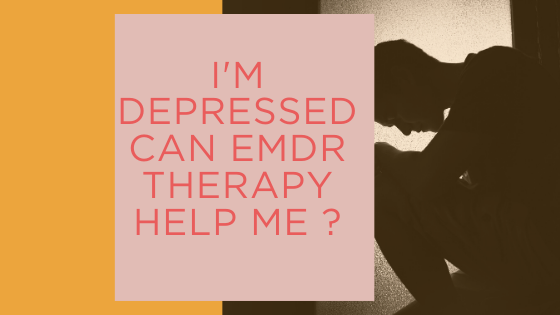EMDR (Eye movement desensitisation and reprocessing) was originally developed as a treatment for trauma. The majority of the research in the early years was with working with clients who had symptoms of Post traumatic stress disorder (PTSD). However very quickly, therapists started to use this treatment with a number of different presenting problems and were getting good results.
I spent most of my career working in an NHS service and working in secondary care with clients who have had many difficulties throughout their lives and don’t tend to experience what we would see as being typical PTSD type symptoms, yet over the years EMDR has helped many clients that have come to see me, almost regardless of what the diagnosis is.
People who describe themselves as feeling depressed tell me that they feel overwhelmed with sadness, they feel worthless and that there is little hope that things will get any better for them. It can be hard to remain interested in things they previously found pleasure in motivation and concentration can severely dip. It’s an awful place to be. Most people may have a few days when they feel like this, and it’s pretty usual to feel this was after a difficult life event. If it lingers on for a longtime however that is really difficult and awful to experience.
EMDR sees problems that we have in the here and now as connected to unprocessed experiences that occurred in our past. These may be an experience that we would traditionally describe as traumatic such as an assault or a car accident or they may be experiences that we would not necessarily describe as traumatic but have been experienced as traumatic or overwhelming in some way such as bullying or relationship breakdowns.
So EMDR sees that life events have a big impact on our mental health and our functioning. What we often see with depression is that it tends to start in the few months after a difficult life event. When we think about it some more, that life event was experienced as traumatic or overwhelming in some way, so as such, our brains do not process and work through those experiences in the same way they would a normal memory. They get stored in a raw way in the brain and often impact on our current thoughts and feelings.
What I have found in working with clients who feel depressed is that it is really important to understand the why. It makes no sense that people would feel depressed for no reason. There is always a good reason why people feel the way that they do. I often find that clients with symptoms of depression have negative thoughts and beliefs about themselves such as ‘I’m no good’, ‘I’m a failure’ but these have often been linked to specific experiences ie. a relationship breaking down and partner saying awful things, loss of a family member and feeling overwhelmed with how unfair it is, bullying at school.
Our job as we meet together for a psychological therapy session is to understand the current problems you are having and identify what have been some of the key experiences in your life that might be connected to this. We then can look at a plan in how to move forward in our treatment. See this blog to find out more about what a therapy session might look like. https://drhannahbryan.com/2020/06/what-happens-in-an-emdr-session/ )
So yes is my quick answer, EMDR therapy can often help if you are feeling depressed as it’s about you meeting with a therapist, developing a detailed understanding of your difficulties and developing treatment plan you can work with.


Recent Comments